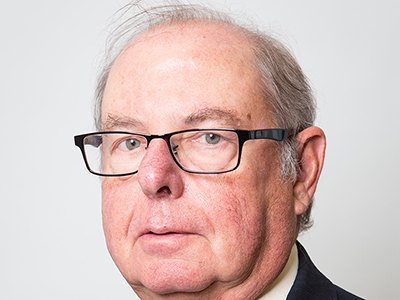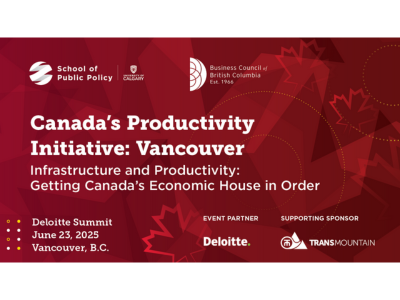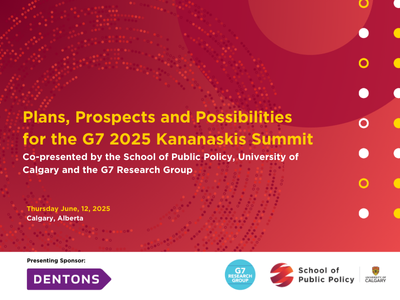Our People Feature: David Bercuson, Associate Director, International Policy and Trade

Back in the day, nothing about David Bercuson suggested that he would someday become one of Canada’s pre-eminent academic experts on defence and the military. Quite the contrary, in fact.
“I’m a child of the ‘60s! I marched against the Vietnam war and all that stuff,” says Bercuson, who is finishing up his term as director of the University of Calgary’s Centre for Military and Strategic Studies.
“By the ‘80s, I’d more or less changed my view,” says Bercuson, who is associate director, international policy, for the University of Calgary’s School of Public Policy. That shift was probably inevitable, given that he grew up in a family that was heavily involved with the military. “My uncles, my dad, everybody had been in the military,” he says.
His early interests focused on labour history, including the Winnipeg General Strike of 1919. “I did a couple books on Canadian labour history and a whole lot of articles, but I was running into problems with Marxists. I did not like to be judged on ideology instead of on my work.” He switched to diplomatic history and from there “it was a short step to military and defence history.”
He has written more than 30 books, both academic and for general audiences, about defence, foreign policy, Canadian military history and Canadian politics. Bercuson is currently working on a book about how the Canadian military has changed since the 1993 Somalia scandal when two Canadian soldiers, ostensibly in the country for humanitarian work, beat a Somali teenager to death.
“The most crucial point was that by the time of Somalia, Canadian society had changed considerably from where it had been in the ‘40s, ‘50s and ‘60s, in two very important ways. We had become a rights-based society. We had a Charter. Everyone said ‘I have rights’, and we began to judge all kinds of issues from the perspective of ‘are my rights being protected?’ We also had a far better educated society than in the 1950s,” Bercuson says.
“When I went to university back in the Stone Age, maybe 10 per cent of high school graduates went on to advanced education. The figure today is 50, 60, 70 per cent. But the military had not kept up with those changes. The military was going in one direction and society in the other. In a democracy, that’s bad for civil-military relations because it undermines military legitimacy in the eyes of society.”
He says that Somalia happened “because of the failure of leadership in the military … different decisions were made at different levels and they were very poor decisions. A group of soldiers was sent to Somalia who should never have been there. My thinking was we needed to change the way we prepared the officer corps for leadership.”
Now, it’s a matter of ensuring those changes are permanent. “We have the best-educated officer corps in the world. You cannot become an officer now without a university degree; that change happened as a result of the work we did in the ‘90s. That university education has to be rich in the arts and humanities. We know if you’re out there, a young lieutenant in the middle of nowhere in a dicey situation, you have to evaluate what’s going on around you. (You have to ask yourself) what is their culture, religion or village like? You could shoot the wrong person and start an international incident,” Bercuson says.
On tap next is a trip to Taiwan in June. “The government wants a group of us to see the strategic problems over there,” he says.
“I’ve led an interesting life. We went to find the battleship Bismarck in the north Atlantic in 2002. I took a ride in a fighter jet in Quebec in 2003 and I’ve been to Afghanistan. That stuff was extraordinary.”
He’s already looking ahead to his next book. “I’d like to do something on the air force in the Second World War, but I need money to go to the U.K. to look at records. My cousin was killed in action in 1944, part of an air crew. We cannot understand what they went through. The odds of surviving those air operations were very small; yet, night after night, they went up.”
Any thoughts of retirement?
“I’ll retire when I die,” Bercuson says.


